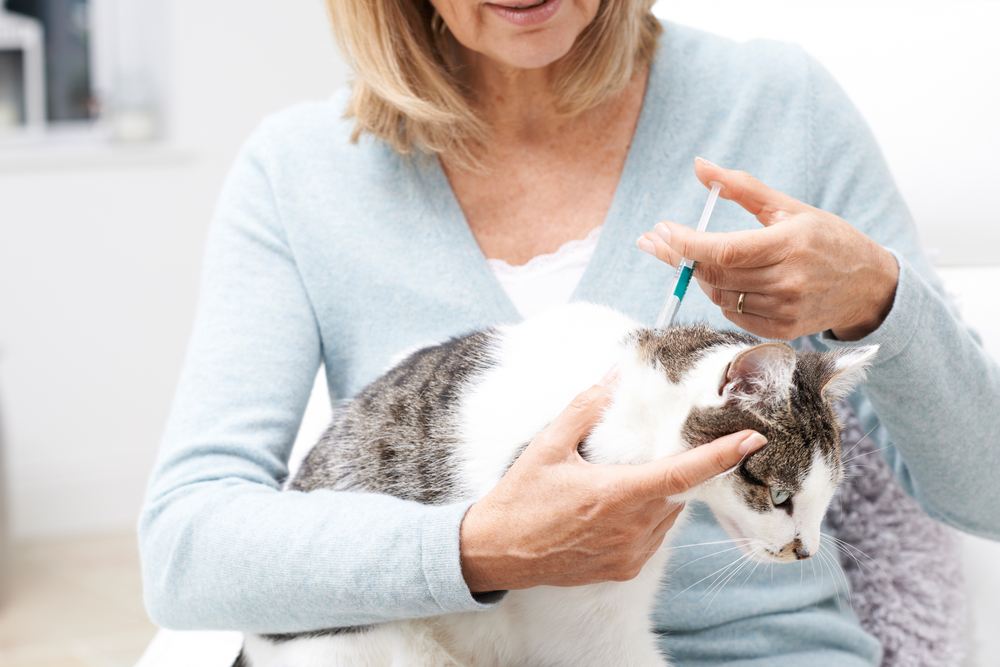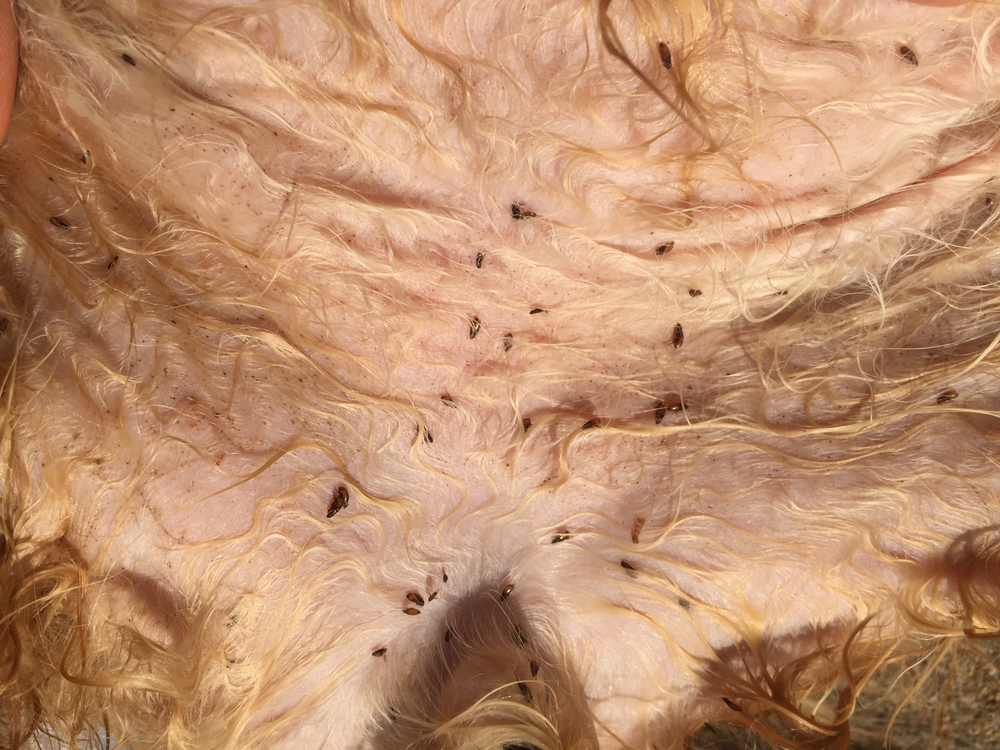Your feline friend’s health and well-being are your priority. One of the best ways to maintain your cat’s optimal health is to ensure they receive year-round parasite prevention. Keeping your cat indoors may reduce but does not eliminate their parasite transmission risk, especially if you have other pets. Our team at Advanced Veterinary Care of Pasco explains feline parasite prevention’s importance.
Fleas and your cat
Fleas are small, wingless insects that survive by consuming their host’s blood. The most common species that infests cats is the cat flea, Ctenocephalides felis. These pests are not only uncomfortable for cats, but they can also transmit diseases such as life-threatening anemia. Adult fleas can jump as far as seven feet, which is how they find a new host, where they feed on the pet’s blood, and lay eggs. The eggs hatch into larvae, which take another blood meal, and become cocooned pupae. The pupae fall into the environment, where they thrive, and can remain dormant for long periods. Some flea infestation complications include:
- Flea allergy dermatitis (FAD) — For cats allergic to flea saliva, only a few bites will cause intense itching, scratching, hair loss, and skin wounds. FAD tends to have a characteristic pattern, appearing first on the back near the tail base but may affect any skin areas.
- Tapeworm infection — The tapeworm species dipylidium caninum can be transmitted to your cat when they ingest an infected flea during grooming. Tapeworms live in the intestines and deposit tiny segments (i.e., proglottids) into the environment. Cats with flea tapeworms will have dried rice-like proglottids in their bedding, litterbox, and the fur around their hind end.
- Anemia — Young kittens with many fleas may lose blood and become anemic quickly. Adult cats don’t usually develop blood-loss anemia, but some infections that fleas transmit may cause anemia.
- Bacterial and zoonotic infections — The bacteria Bartonella, murine typhus, plague, and rickettsiosis can sicken your cat. These bacteria can also make you and your family members ill if infected fleas bite you. If your feline friend has Bartonella (i.e., cat scratch fever), you can become ill if your cat scratches or bites you.
Ticks and your cat
Many people assume that cats don’t get ticks because they are such careful groomers, however, ticks are a year-round threat to both indoor and outdoor pets. Ticks are most active during early spring and fall, but several species withstand above-freezing temperatures. All tick species can also re-emerge on mild winter days in search of their next meal, which may be you or your pet. Ticks transmit several diseases, and although cats are resistant to Lyme disease, they are susceptible to other severe and life-threatening tick-borne diseases. Tick-borne illnesses that affect cats may include:
- Haemobartonella/mycoplasma — This bacterial agent attaches to red blood cells and causes severe anemia.
- Cytauxzoonosis — This protozoan parasite may cause fever, lethargy, anemia, and trouble breathing, and is usually fatal.
- Tularemia—This bacterial infection, which may cause enlarged lymph nodes, fever, and abscesses, may be life-threatening.
Heartworms and your cat
Dogs are heartworms’ natural hosts, but if an infected mosquito bites a cat, the few worms that are transmitted can cause chronic respiratory inflammation, asthma-like symptoms, and even sudden death. Heartworm treatment is not safe for cats, making prevention critical.
Feline and heartworm prevention

Parasites can make your cat miserable and expose them to life-threatening diseases, but you can easily prevent these parasites with monthly prevention medication. For cats, our Advanced Veterinary Care of Pasco team recommends NexGard Combo, which controls fleas, ticks, ear mites, roundworms, hookworms, and tapeworms, and can also prevent heartworm infections.
Despite receiving the best preventive care, some cats may develop diseases and illnesses. Regular wellness checks are critical to evaluate your cat’s overall health and screen for disease signs that may not be apparent. Adult wellness checks should be performed annually until your cat is 5 years of age, and senior wellness checks twice yearly thereafter help identify and address health concerns as they get older. Wellness visits include a thorough physical exam and fecal analysis to screen for intestinal parasites.
If you believe your cat has fleas, has been exposed to ticks or mosquitoes, or you have questions about Nexgard Combo or other preventive care strategies, schedule an appointment with our Advanced Veterinary Care of Pasco team.








Leave A Comment